|
Send an e-gift that supports inclusion!
Remember someone special on Mother's Day, Father's Day, a birthday, or any occasion, with an e-gift and help the new National Center on Disability in Public Health include people with disabilities. When you give an e-gift to an important person in your life, you are helping to include people who have disabilities! Give an e-gift today!
54 Learn the Signs. Act Early. Ambassadors Complete Annual Training
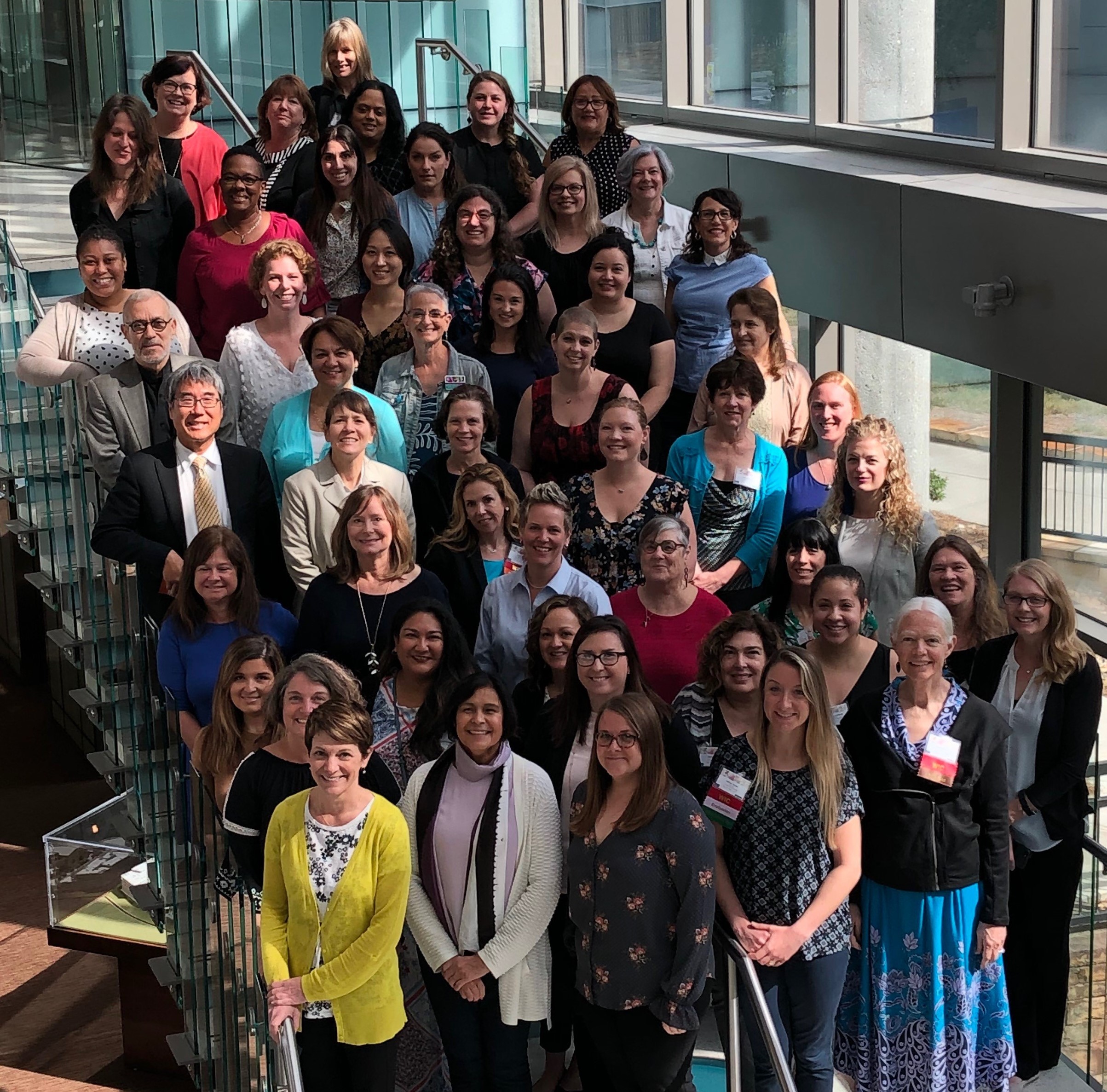 42 new Learn the Signs. Act Early. Ambassadors joined forces with a veteran cohort of 12 Ambassadors representing 48 states, 3 territories and the District of Columbia on the campus of the Centers for Disease Control and Prevention (CDC) for the Annual Act Early Ambassador Training April 30-May 1, 2019. Act Early Ambassadors work with the CDC LTSAE program by promoting the adoption and integration of LTSAE resources, including materials to support developmental monitoring and professional education tools into systems that serve young children and their families or train those who serve young children and their families. Continue Reading... 42 new Learn the Signs. Act Early. Ambassadors joined forces with a veteran cohort of 12 Ambassadors representing 48 states, 3 territories and the District of Columbia on the campus of the Centers for Disease Control and Prevention (CDC) for the Annual Act Early Ambassador Training April 30-May 1, 2019. Act Early Ambassadors work with the CDC LTSAE program by promoting the adoption and integration of LTSAE resources, including materials to support developmental monitoring and professional education tools into systems that serve young children and their families or train those who serve young children and their families. Continue Reading...
#IDefineMyWellness Twitter Chat
Thursday May 30, 2019 2:00pm-3:00pm ET
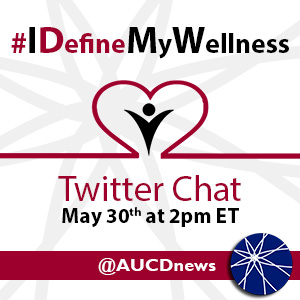 During Mental health Awareness Month, AUCD's Executive Director Andy Imparato and the Director UCEDD/LEND at Georgia State University Mark Crenshaw will participate in a Twitter chat to engage the overall disability community in a conversation on what wellness means and encourage sharing of helpful resources. Continue Reading... During Mental health Awareness Month, AUCD's Executive Director Andy Imparato and the Director UCEDD/LEND at Georgia State University Mark Crenshaw will participate in a Twitter chat to engage the overall disability community in a conversation on what wellness means and encourage sharing of helpful resources. Continue Reading...
Need Category I CECHs/CEUs?
 The National Center on Disability in Public Health launched a three-part webinar series focused on; evidence-based strategies of the National Center and how participants can be involved; evidence-based approaches to build capacity towards inclusion of people who have disabilities in health promotion efforts; and management strategies that support inclusion and action plans that sustain change. Continue Reading... The National Center on Disability in Public Health launched a three-part webinar series focused on; evidence-based strategies of the National Center and how participants can be involved; evidence-based approaches to build capacity towards inclusion of people who have disabilities in health promotion efforts; and management strategies that support inclusion and action plans that sustain change. Continue Reading...
Work with Us
Need help with Disability Inclusion? Set up an introductory call with one of our team! We'll share evidence-based strategies that work!
AUCD NEWS & EVENTS
Submit a Proposal for AUCD 2019 Today!
Due: Friday May 24, 2019
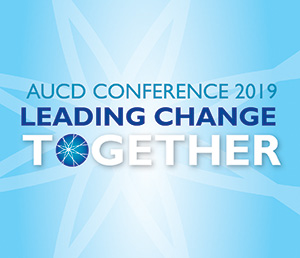 The AUCD Conference is one of the nation's premier places to highlight your work. Over 200 different presentations will be accepted to the conference in several different types of sessions, formatted for maximum visibility and interaction with attendees. Proposals are encouraged from students, self-advocates, family leaders, clinicians, and researchers in over 25 topics. Don't miss your chance: submit a proposal today! Continue Reading... The AUCD Conference is one of the nation's premier places to highlight your work. Over 200 different presentations will be accepted to the conference in several different types of sessions, formatted for maximum visibility and interaction with attendees. Proposals are encouraged from students, self-advocates, family leaders, clinicians, and researchers in over 25 topics. Don't miss your chance: submit a proposal today! Continue Reading...
AUCD President, Sachin Pavithran, Discusses the Invisible Crime of Disability Hate
 "Violence against people with disabilities is too often dismissed as people just being immature. Hate crimes that get attention are against more historically known groups and hate crimes against people with disabilities are shoved under the carpet because it is seen as a crime of convenience, not hate." This is particularly true for the intersection of race and disability, as well as gender and disability (80 percent of women with intellectual disabilities have experienced sexual violence " they are more likely to be sexually assaulted) "I'm not ashamed to talk about it," said Pavithran. Continue Reading... "Violence against people with disabilities is too often dismissed as people just being immature. Hate crimes that get attention are against more historically known groups and hate crimes against people with disabilities are shoved under the carpet because it is seen as a crime of convenience, not hate." This is particularly true for the intersection of race and disability, as well as gender and disability (80 percent of women with intellectual disabilities have experienced sexual violence " they are more likely to be sexually assaulted) "I'm not ashamed to talk about it," said Pavithran. Continue Reading...
Access to Healthcare
2019 Health Value Dashboard
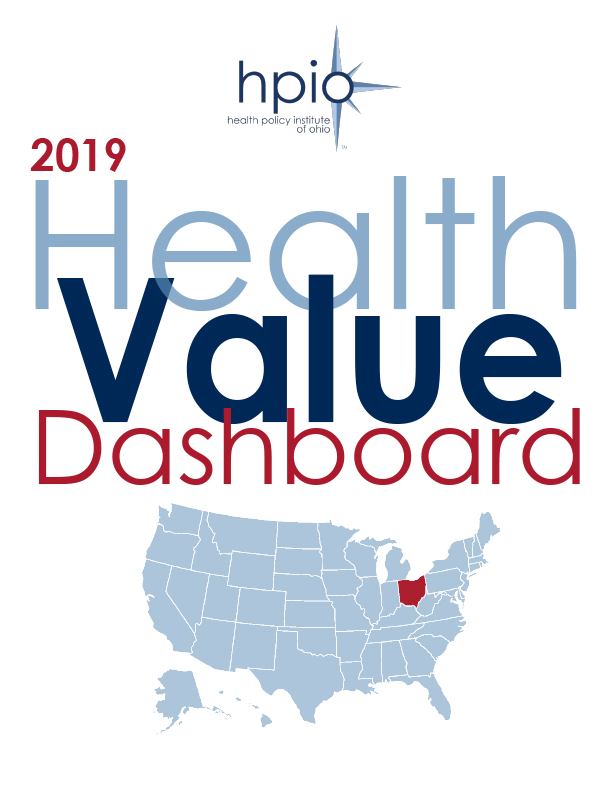 The Health Policy Institute of Ohio's Health Value Dashboard is a tool to track Ohio's progress towards health value - a composite measure of Ohio's performance on population health outcomes and healthcare spending. The Dashboard examines Ohio's rank and trend performance relative to other states and highlights gaps in outcomes between groups for some of Ohio's most at-risk populations. Continue Reading... The Health Policy Institute of Ohio's Health Value Dashboard is a tool to track Ohio's progress towards health value - a composite measure of Ohio's performance on population health outcomes and healthcare spending. The Dashboard examines Ohio's rank and trend performance relative to other states and highlights gaps in outcomes between groups for some of Ohio's most at-risk populations. Continue Reading...
Developmental Monitoring
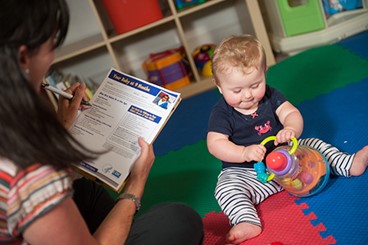
Improving Access for Autism in Toddlers with a New Level-2 Interactive Screening Test, the RITA-T (Rapid Interactive Screening Test for Autism in Toddlers)
 At UMass Medical School in Worcester and part of the Developmental and Behavioral Pediatrics Division, we have been developing and testing the RITA-T as a new Level 2 screening measure in a two-level screening model to improve access in toddlers with high risk of ASD. The RITA-T can be used alone or following a Level 1 screening measure such as the MCHAT-R (Modified Checklist for Autism in Toddlers- Revised). Continue Reading... At UMass Medical School in Worcester and part of the Developmental and Behavioral Pediatrics Division, we have been developing and testing the RITA-T as a new Level 2 screening measure in a two-level screening model to improve access in toddlers with high risk of ASD. The RITA-T can be used alone or following a Level 1 screening measure such as the MCHAT-R (Modified Checklist for Autism in Toddlers- Revised). Continue Reading...
Developmental Milestone Video Broadcast in Rural Health Clinics (NV UCEDD/LEND)
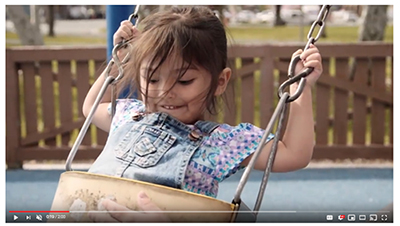 The Rural Institute for Inclusive Communities has partnered with the Nevada Center for Excellence in Disabilities, Nevada LEND program and Good Health TV to share a developmental milestone video with parents and families. The Centers for Disease Control and Prevention (CDC) "Learn the Signs. Act Early." (LTSAE) program aims to improve early identification of children with autism and other developmental disabilities so children and families can get the services and support they need. Continue Reading... The Rural Institute for Inclusive Communities has partnered with the Nevada Center for Excellence in Disabilities, Nevada LEND program and Good Health TV to share a developmental milestone video with parents and families. The Centers for Disease Control and Prevention (CDC) "Learn the Signs. Act Early." (LTSAE) program aims to improve early identification of children with autism and other developmental disabilities so children and families can get the services and support they need. Continue Reading...
Improving Developmental Screening and Referral for Non-English/Non-Spanish (NENS) Families
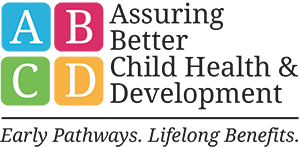 The Denver Health Lowry Family Health Center received a grant from the Colorado Health Foundation and partnered with Assuring Better Child Health and Development (ABCD) to improve developmental screening and referral for Non-English/Non-Spanish (NENS) families. The purpose of the project is to increase developmental screening for NENS children to improve the early identification of children with potential developmental delays and get them connected to developmental services as early as possible. Continue Reading... The Denver Health Lowry Family Health Center received a grant from the Colorado Health Foundation and partnered with Assuring Better Child Health and Development (ABCD) to improve developmental screening and referral for Non-English/Non-Spanish (NENS) families. The purpose of the project is to increase developmental screening for NENS children to improve the early identification of children with potential developmental delays and get them connected to developmental services as early as possible. Continue Reading...
Emergency Preparedness
New! Capacity-Building Toolkit for Including Aging & Disability Networks in Emergency Planning
 NACCHO and the Association of State and Territorial Health Officials (ASTHO), in collaboration with the Office of the Assistant Secretary for Preparedness and Response (ASPR) and the Administration for Community Living, are pleased to announce the launch of the Capacity-Building Toolkit for Including Aging and Disability Networks in Emergency Planning (‘Capacity-Building Toolkit'). Continue Reading... NACCHO and the Association of State and Territorial Health Officials (ASTHO), in collaboration with the Office of the Assistant Secretary for Preparedness and Response (ASPR) and the Administration for Community Living, are pleased to announce the launch of the Capacity-Building Toolkit for Including Aging and Disability Networks in Emergency Planning (‘Capacity-Building Toolkit'). Continue Reading...
Nutrition and Healthy Weight
Preliminary Study of a Caregiver-based Infant and Child Feeding and Swallowing Screening Tool
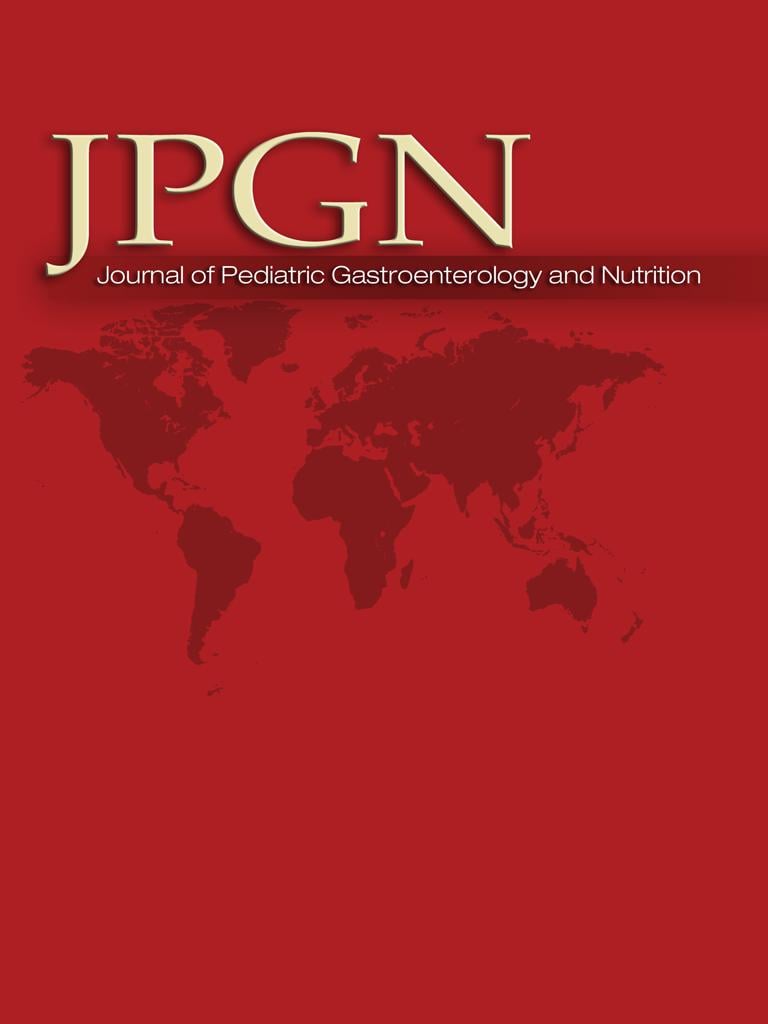 Feeding problems are a heterogeneous group of disorders with many causes that disrupt the acquisition of age-appropriate feeding habits. Feeding problems, including food refusal, swallowing problems, disruptive mealtime behavior, rigid food preferences, failure to master age-appropriate feeding skills, inadequate weight gain, and other nutritional concerns (defined hereafter as feeding problems or FP) have been reported in 15% to 45% of typically developing children. Continue Reading... Feeding problems are a heterogeneous group of disorders with many causes that disrupt the acquisition of age-appropriate feeding habits. Feeding problems, including food refusal, swallowing problems, disruptive mealtime behavior, rigid food preferences, failure to master age-appropriate feeding skills, inadequate weight gain, and other nutritional concerns (defined hereafter as feeding problems or FP) have been reported in 15% to 45% of typically developing children. Continue Reading...
Pediatric Feeding Disorder-Consensus Definition and Conceptual Framework
 Pediatric feeding disorders (PFDs) lack a universally accepted definition. Feeding disorders require comprehensive assessment and treatment of 4 closely related, complementary domains. Previous diagnostic paradigms have, however, typically defined feeding disorders using the lens of a single professional discipline and fail to characterize associated functional limitations that are critical to plan appropriate interventions and improve quality of life. Continue Reading... Pediatric feeding disorders (PFDs) lack a universally accepted definition. Feeding disorders require comprehensive assessment and treatment of 4 closely related, complementary domains. Previous diagnostic paradigms have, however, typically defined feeding disorders using the lens of a single professional discipline and fail to characterize associated functional limitations that are critical to plan appropriate interventions and improve quality of life. Continue Reading...
Sexual and Reproductive Health

Sex Talk for Self-Advocates Webinar #5
Thursday, May 16, 2019, 2:00 p.m. - 3:00 p.m. ET
 Join us for Sex Talk for Self-Advocates Webinar #5. This webinar focuses on birth control and contraception for individuals with intellectual and developmental disabilities. This webinar is part of an on-going series that addresses self-advocate questions about relationships and sexuality. Continue Reading... Join us for Sex Talk for Self-Advocates Webinar #5. This webinar focuses on birth control and contraception for individuals with intellectual and developmental disabilities. This webinar is part of an on-going series that addresses self-advocate questions about relationships and sexuality. Continue Reading...
Importance of Sexual Health for Individuals with IDD [Archived Webinar]
 Sexual health is an important topic for individuals with intellectual and developmental disabilities (IDD). Unfortunately, conversations related to sexual health are often not fully addressed or are pushed aside because of fear, lack of comfort with the topic, or lack of information. Continue Reading... Sexual health is an important topic for individuals with intellectual and developmental disabilities (IDD). Unfortunately, conversations related to sexual health are often not fully addressed or are pushed aside because of fear, lack of comfort with the topic, or lack of information. Continue Reading...
Nothing About Us Without Us: Including People with Disabilities as Part of the Solution
 Karen Topper, Executive Director of Green Mountain Self Advocates, asked, "can we create a sexuality education curriculum where people with developmental disabilities are teachers and are actively involved in creating this educational tool?" Can you imagine a sexuality education class for people with developmental disabilities where the teachers are people with disabilities? If this were our approach, what kind of impact would that have on the sexual health of people with developmental disabilities? Continue Reading... Karen Topper, Executive Director of Green Mountain Self Advocates, asked, "can we create a sexuality education curriculum where people with developmental disabilities are teachers and are actively involved in creating this educational tool?" Can you imagine a sexuality education class for people with developmental disabilities where the teachers are people with disabilities? If this were our approach, what kind of impact would that have on the sexual health of people with developmental disabilities? Continue Reading...
Become a Sexuality Educator and Trainer
 Increase your skill and comfort level when addressing sexuality with people with developmental disabilities.Don't miss this opportunity to get the training and support you need to make a difference in the lives of people with developmental disabilities. Continue Reading... Increase your skill and comfort level when addressing sexuality with people with developmental disabilities.Don't miss this opportunity to get the training and support you need to make a difference in the lives of people with developmental disabilities. Continue Reading...
Wellness and Mental Health

Study Finds that Psychiatric Emergency Room Visits Increased Among US Youth
 In a recent study published in Pediatrics, Luther Kalb, PhD, core faculty member of the IDDRC at the Kennedy Krieger Institute, examined trends in psychiatric emergency department (ED) visits from 2011 to 2015 among youth ages 6 to 24 in the U.S. Data for this study primarily came from the National Ambulatory Medical Care Survey, a national survey of ED visits across the US. Continue Reading... In a recent study published in Pediatrics, Luther Kalb, PhD, core faculty member of the IDDRC at the Kennedy Krieger Institute, examined trends in psychiatric emergency department (ED) visits from 2011 to 2015 among youth ages 6 to 24 in the U.S. Data for this study primarily came from the National Ambulatory Medical Care Survey, a national survey of ED visits across the US. Continue Reading...
Other Resources
Messaging to Advance Health Equity in Public Policy- A Culture of Health Webinar
Wednesday June 12, 2019, 3:00-4:30pm ET
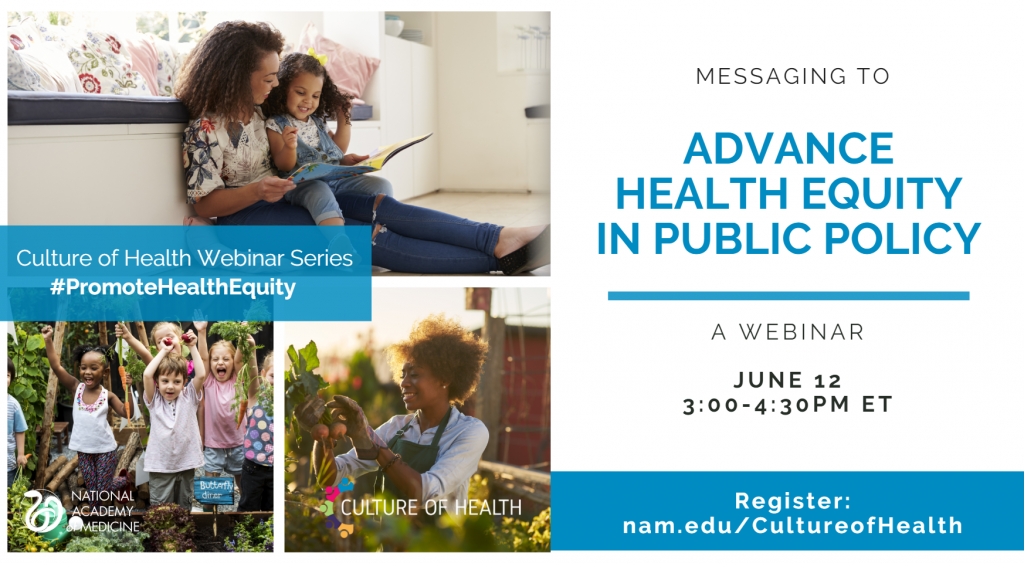 Join the National Academy of Medicine on June 12 for a 90-minute webinar where field leaders will provide tips and tactics for effectively messaging health equity to advance public policy. The webinar will also feature a case study to illustrate how value-based messaging has proven effective in creating common ground to advance necessary change. Continue Reading... Join the National Academy of Medicine on June 12 for a 90-minute webinar where field leaders will provide tips and tactics for effectively messaging health equity to advance public policy. The webinar will also feature a case study to illustrate how value-based messaging has proven effective in creating common ground to advance necessary change. Continue Reading...
Just Released: 2019 NH Disability & Public Health Infographic Report
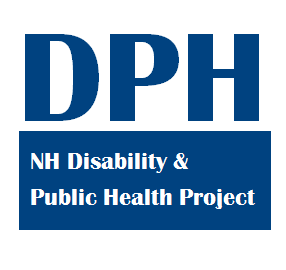 The 2019 NH Disability & Public Health Infographic Report shares data about the prevalence of mobility, cognitive, hearing, and vision disabilities among NH adults. Learn more about differences in many indicators of health, including the social determinants, and discover strategies to improve health equity for NH adults with disabilities. Continue Reading... The 2019 NH Disability & Public Health Infographic Report shares data about the prevalence of mobility, cognitive, hearing, and vision disabilities among NH adults. Learn more about differences in many indicators of health, including the social determinants, and discover strategies to improve health equity for NH adults with disabilities. Continue Reading...
|


